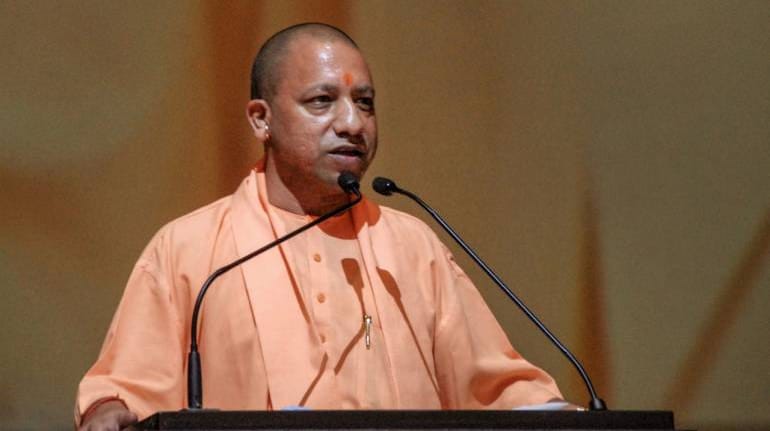



The economy is in its worst slowdown in two decades and as the ruling party in most Indian states as well as at the Centre the Bharatiya Janata Party (BJP) is facing perhaps its biggest challenge since it stormed to power in 2014. Therefore, perhaps, the saffron party is looking for issues that could help divert the negative attention. The Ram temple in Ayodhya is one such emotional tug but with BJP holding a brute majority both at the Centre and in Uttar Pradesh its construction is held to be a foregone conclusion by a large number of pro-temple Hindus.
Perhaps, that’s why, despite the unhappiness of BJP leaders over the ‘botched-up’ implementation of the National Register of Citizens (NRC) in Assam, Yogi Adityanath and Manohar Lal Khattar, chief ministers of the BJP-ruled states of UP and Haryana, are keen to try the same in their own states.
Adityanath was the first to say that the NRC can be implemented in phases in UP ‘if needed’. Soon after Khattar, while on a public outreach campaign ahead of elections in the state, said that “we will implement NRC”. Haryana is a major manufacturing and industrial hub and is bearing the brunt of the downward economic spiral with major auto giants such as Maruti cutting down production.
The NRC was first made soon after the first population census in 1951. With the publication of the updated NRC, which has left nearly 2 million people out, Assam has become the first state in India to revise the register of citizens. The north-eastern state, which shares a long and porous border with Bangladesh, has for decades witnessed an ending and often violent campaign by groups such as the All Assam Students Union (AASU), against what they termed as the illegal immigration by Bangladeshis.
Such groups are of the view that the state’s demography and culture is being altered by illegal immigrants from Bangladesh, as well as Bengali-speaking Hindu settlers from undivided Bengal. The just-completed NRC has not satisfied both the BJP and the AASU, and their critics say it’s because a large number of Hindus too have been excluded from the NRC.
The BJP has said that it plans to update the NRC across the country and weed out illegal infiltrators. It has also said that Buddhists, Hindus and Sikhs need not worry.
That leads us to the question: Why does Haryana and UP want to update the NRC? Haryana is surrounded by neighbouring states, while UP has an international border with Nepal — which is a Hindu nation with a majority identifying with one or another Hindu sect. By its own estimates, there are no more than 1500 odd Rohingya Muslims in Haryana and they are under the Centre’s supervision. In UP, there are no official estimates of illegal immigrants but what exists is a kind of phobia towards Muslims immigrants as was reflected in the condemnable remarks of one its senior ministers who said, “India is not a ‘dharamshala’ that people can come and stay illegally. If illegal Bangladeshis are found in UP, they will be deported as per law”. This remark betrays the disregard for the Indian motto of ‘vasudhaiva kutumbakam’ (world is one family).
The BJP and its rank and file claim that illegal migrants have pervaded India and it is not just limited to the border states. Adding to this is the narrative that these illegal migrants are taking away the jobs of poor Indians. This largely Islamophobic fear mongering is likely to become a primary election plank for the BJP in Haryana which is going to the polls in a few weeks’ time, in Delhi which goes to the polls early next year and in West Bengal which goes to the polls in 2021.
Faced with an economic slowdown and growing unemployment, the bogey of Muslims from neighbouring countries usurping the resources and jobs of locals is likely to be raised to a fever pitch as it helps in deflecting the people’s attention from the government’s shortcomings on the economic front.
The Opposition’s response to this has been simpering with at least one senior Congress leader in Haryana supporting Khattar on the need to identify ‘infiltrators’.
In the last three years less than 500 Bangladeshis have been deported from India, which in a sense reflects the complexity of the issue of migration both from other Indian states as well as from neighbouring countries. In fact, as the NRC has shown a majority of people whom the BJP labels ‘Bangladeshis’ are often Bengali-speaking Indian citizens who come to north Indian cities in search of a livelihood.
The spectre of Indian jobs and resources being usurped is tantalisingly scary, and with elections coming we are likely to see it being projected more widely and intensely. However, what will be our response to it?
Valay Singh is a freelance journalist. Views expressed personal.
Discover the latest Business News, Sensex, and Nifty updates. Obtain Personal Finance insights, tax queries, and expert opinions on Moneycontrol or download the Moneycontrol App to stay updated!
Find the best of Al News in one place, specially curated for you every weekend.
Stay on top of the latest tech trends and biggest startup news.